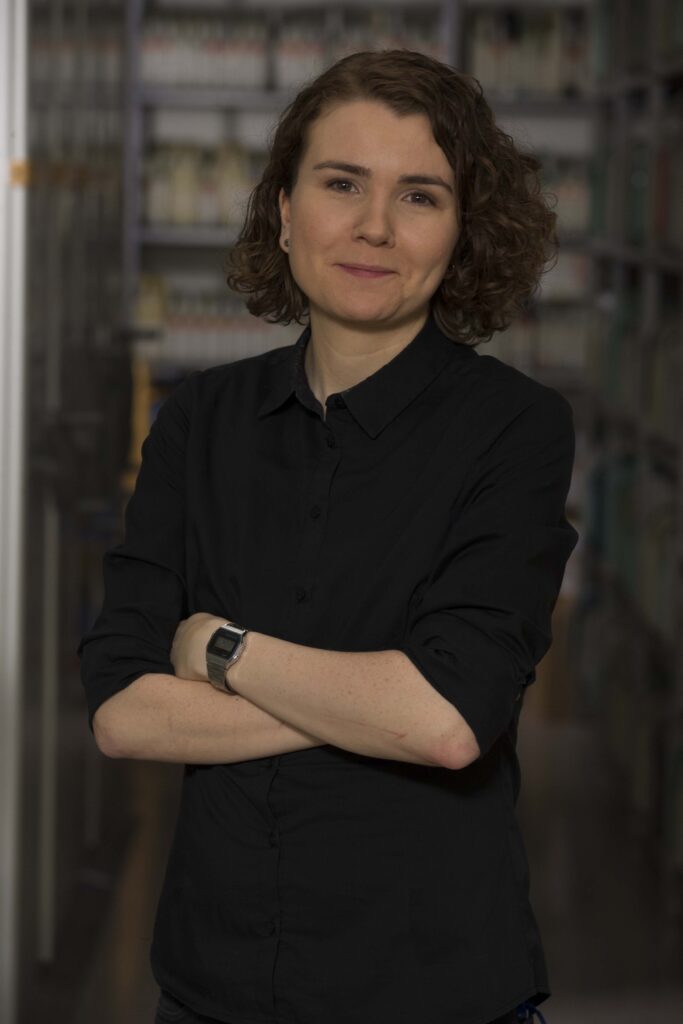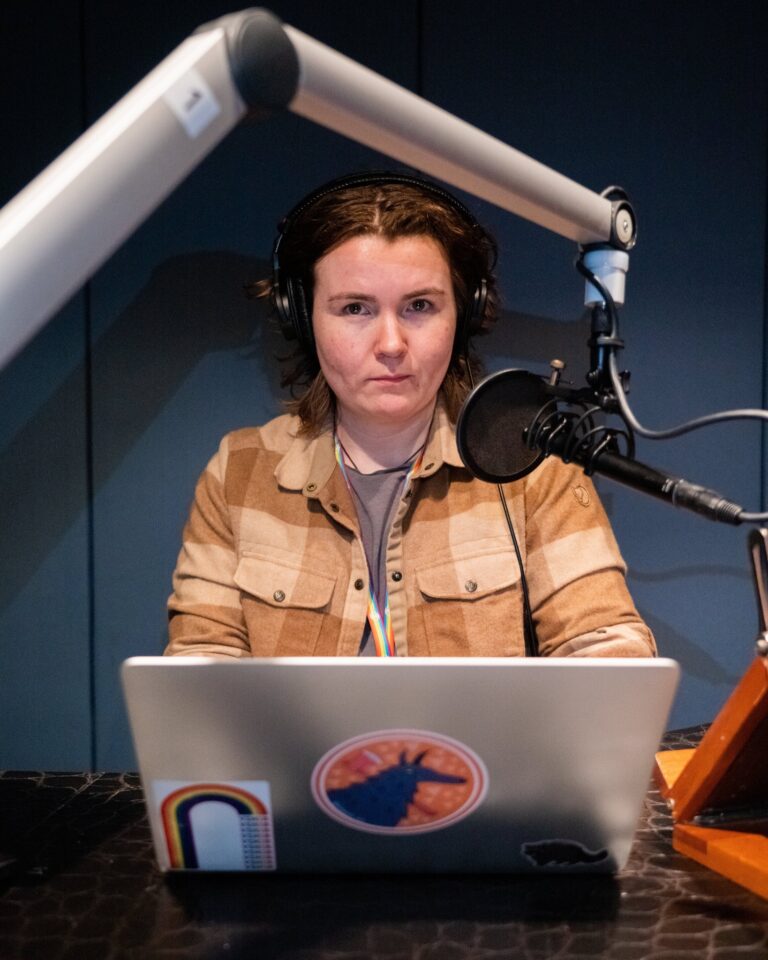Vera Illugadóttir on Anita Bryant, Christianity, and the fight against bigotry in Iceland.
A pop singer turned Miss Oklahoma beauty pageant winner turned Florida Citrus Commission spokesperson was once the most prominent face of homophobia in the United States.
Anita Bryant, whose “Save Our Children” campaign successfully repealed a local Miami-Dade County ordinance forbidding discrimination on the basis of sexual orientation, was in the mid to late 70s seemingly unstoppable. A Christian fundamentalist capable of convincing thousands, if not millions, that gay people were predators and groomers, and a pernicious threat to children in particular.
And then, everything changed. Months after Save Our Children successfully repealed the ordinance, she was pied in the face on national television. Celebrities came forward saying they were boycotting Florida orange juice. Late night talk show hosts began to make fun of her. Seemingly overnight, she went from supervillain to nobody.
Anita Bryant was the subject of discussion on a recent episode of Í ljósi sögunnar (“In light of history”), hosted by Vera Illugadóttir. What sparked her interest in this hateful character from yesteryear?
A distant mirror
“It was an idea that I got related to the current discourse about children and queer rights,” Vera tells us. “I thought it would be a good idea to just present the story and go through it. Because there are so many similarities to what people are saying now, unfortunately.”
And what similarities are those in particular?
“Just the whole discourse about saving children, or protecting children, from queer people,” she says. “And protecting them from queer influence and learning about queerness and queer rights, and somehow presenting queer people as being inherently dangerous to children. And you can also see in the comment sections today a similarity. People are bringing up the church, God and Jesus Christ and whatnot. Obviously, that was Anita Bryant’s whole shtick, she was very religious, and talked very openly about queer people as sinners and going against God and so forth. It’s amazing to still see people making those arguments today in 2023.”
I think it’s a part of people taking this culture war wholesale from the US, including religion and everything. And it’s really weird to see because our national church has mostly made peace with the queer community years ago.
Will fundamentalism play in Iceland
I mention the fact that despite having a national church, Iceland does not have much of a history of Christian fundamentalism playing an active role in modern politics, unlike the United States.
“It’s so surprising to see,” Vera agrees. “And I think it’s a part of people taking this culture war wholesale from the US, including religion and everything. And it’s really weird to see because our national church has mostly made peace with the queer community years ago. So this should be a non issue.”
And this is true: Parliament made same-sex marriage legal in 2009 and, despite initial objections, the Church of Iceland agreed to begin marrying gay couples in 2015.
“And there’s been also, just in the past few years, a movement of sort of trying to heal,” Vera adds. “Priests and people from the church did say hurtful things years ago, but there’s been work done to heal those wounds recently. So I think those are all great things. And it’s very disappointing to see a sort of Christianity brought into this fight against queer rights again.”
The same playbook
The culture war bigotry being imported into Iceland these days focuses primarily on trans people and teachers, as it does abroad. Are we seeing a repeat of the Anita Bryant movement?
“Yes, I think so,” Vera says. “It’s very similar rhetoric, except, you know, mostly now we have trans people as the enemy instead of homosexuals. Like if you look at what Anita Bryant and her allies were saying, back in the back in the 70s, a huge concern for them was that homosexual teachers were recruiting kids in schools, or whatever. It’s the same thing now, except they’re saying that trans people are recruiting children to be trans. It’s exact, it’s almost the exact same rhetoric, except now it’s trans people and trans kids.”
If you look at what Anita Bryant and her allies were saying, back in the back in the 70s, a huge concern for them was that homosexual teachers were recruiting kids in schools, or whatever. It’s the same thing now, except they’re saying that trans people are recruiting children to be trans.
How the sun set on Anita
If we can see the same playbook being used now as was used then, might we also learn how to stop the spread of this bigotry in the same way? How did it all end for Anita Bryant?
“She managed what she set out to do initially: to repeal the Miami law that she initially came out against,” Vera says. “But then her personal campaigning kind of petered out. She became a ridiculous figure; a figure of scorn, and she was made fun of.”
As bigotry is never fully defeated once and for all, Vera stresses the importance of remembering that Anita Bryant didn’t really go anywhere. In fact, she runs a modest ministry out of her home state of Oklahoma
“Obviously, the movement that she had a part in, in setting off activating those Christian fundamentalists and against homosexuals and queers, continued and continues today, unfortunately,” Vera says. “We’ve had all over the US similar arguments to the ones she was using.”

Is there hope for Iceland?
Given the lack of Christian fundamentalism really being “a thing” in Iceland, some might feel complacent; that we can rest on our laurels and wait for the bigots to get bored and go away. Vera would caution against that.
“I think we absolutely need to be vigilant,” she says. “I think maybe this current like upheaval will, I hope, eventually fizzle out. Because it’s based on so much bullshit. But I think we absolutely need to be vigilant. Just looking at the countries, not just the US and the UK, but the Nordic countries and other countries in Europe, there is absolutely a need to be vigilant and to not let those homophobic and transphobic powers and individuals gain more influence in society.”
I think it’s important for allies to just speak up when it’s possible: at the office cafeteria, or whatever, or in the Facebook comments, and obviously, educate oneself and listen to listen to queer people in order to know what to say and how to react.
She continues: “We’ve been talking about this backlash and whatnot for I think, three years now. I’ve always been optimistic that it’s just some kind of reactionary push back, because queer people are taking up more space and being more open and feeling like they can be more open about who they truly are. But I have to admit that just like the last few months, my optimism has decreased a bit. It is completely ridiculous what people are saying out there and how some people are behaving. So, you know, I do feel a little more concerned. I want us to be more vigilant, to push back more against this.”
That being said, Vera is optimistic.
“You can see now that we have a lot of support and people are coming out and showing support as well,” she says. “I think it’s important for allies to just speak up when it’s possible: at the office cafeteria, or whatever, or in the Facebook comments, and obviously, educate oneself and listen to listen to queer people in order to know what to say and how to react. I also think it’s just really important, and I really hope that in Iceland, we maintain the unity of the queer community here.”
A unified front, both amongst allies of queer people and within the queer community itself, may be our best hope against hate. Can Iceland pull it off? Here’s hoping.


